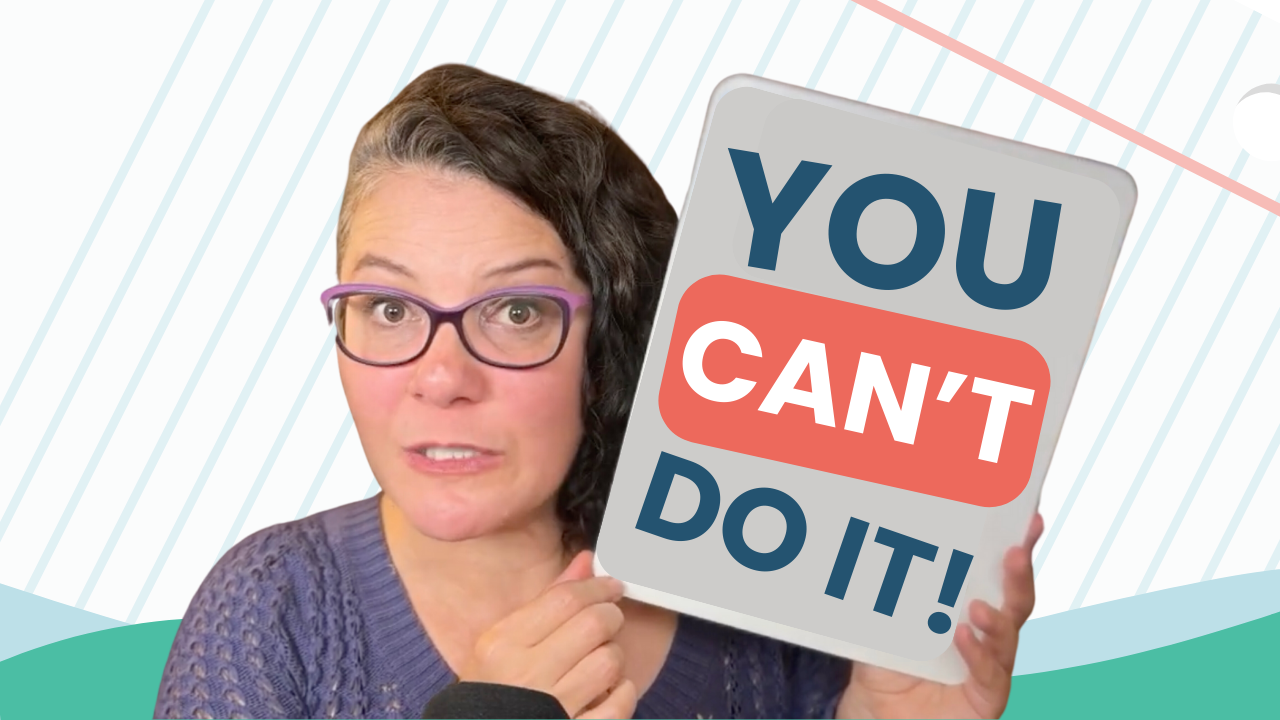Welcome to the
Anti-Boring Blog
Students Don't Follow Through on Commitments?
Whether you are a classroom teacher or academic coach, it can be incredibly frustrating when students don’t follow through on their responsibilities.
Recently, a coach who has been trained in the Anti-Boring Toolkit wrote into our community listserv with a frustration:
I have a client who is super keen when we are working together. She agrees to commitments and assures me that it is not overwhelming, and that everything is clear and doable. She then does not follow through at all—no matter the reminders I send her. Do you all have any other suggestions on how I can have an impact in a way that she begins to see success and wants to do it on her own?
Today I’d like to highlight the excellent responses from the Anti-Boring Certified Coaches on the listserv. As I read through their reflections, I couldn’t help but notice that each one highlighted a different academic coaching skill that we teach inside the Anti-Boring Learning Lab, where we teach the tools and the brain science students need to shift from unmotivated, bored, and struggling students into independent, motivated, self-starting learners.
Which of the following three coaching skills do you need to work on?
Is It a Lack of Motivation Or…? Part 4 of 4
This the fourth and final blog post in our series on student motivation.
I propose that what looks like lack of motivation in students might be something else entirely, and we’ve explored seven different options for what might be going on instead.
First, I proposed four “low hanging fruit” options that are always the first I consider when working with a new student or a new challenge: a brain-based difference, having the wrong tools on hand, lack of clarity about the assignment, and/or a faulty environment.
Second, there is usually a skill weakness contributing to the feeling of lack of motivation, and in the second post in our series I explored three different ways students often need to build their abilities in order to feel more consistently motivated.
Third, I proposed three options from Self-Determination Theory that are often at play when a student complains of lack of motivation: the need for more autonomy, competence, and/or relatedness.
Today we discuss three final “root causes” for feeling unmotivated: Mismatched Rewards, Identity Reframe, and Self-Care.
If you are a teacher, coach, tutor, or educator of any kind, today’s post will help you address lack of motivation in your students.
Is It a Lack of Motivation Or…? Part 3 of 4
As I scanned study after study, I noticed the prevalence of one theory of motivation that seemed to be referenced more than others -- Self Determination Theory.
Good thing that is, because this is the theory of motivation that inspired me eight years ago and is the basis for how I focus my choices as an academic coach. I find it to be super practical, and I’m excited to share my thoughts about it today.
In this reflection, we are going to dive into three challenges to student motivation derived from the psychological framework Self Determination Theory: autonomy, competence, and relatedness.
This is applicable to your work with students, regardless of whether you are a classroom teacher, academic coach, or tutor!
Is It a Lack of Motivation Or…? Part 2 of 4
Motivation Shmotivation! What would happen if we stopped complaining about students not being “motivated” enough -- and instead worked to figure out what is the root issue behind the apparent lack of motivation?!
In the first part of the series, we looked at the four “low-hanging fruit” reasons why a student might appear unmotivated. Before I begin to solve a student’s motivation dilemma, I try to double-check whether the student: (1) has diagnosable brain-based differences, (2) has the right tools for learning, (3) understands the task, and (4) is in an appropriate environment for taking action.
The next most common reason a student might appear unmotivated is that they have a skill weakness that is keeping them from getting started with a task.
There are three key areas in which students have skill deficits that impact their motivation to learn.
These three skill sets are at the center of my Anti-Boring Approach to teaching educators how to coach students. I find that once students better understand what exactly is happening in their brains while they’re learning, they make better choices in their learning.
Is It a Lack of Motivation Or…? Part 1 of 4
The question I get asked most by parents and educators is: how do I motivate unmotivated students?
Sometimes I think the word “motivation” itself is unhelpful, because it feels like we’re talking about something important and specific when actually we’re not.
In fact, I’ve noticed “lack of motivation” often masks eleven different challenges a student could be facing instead.
Le’s examine the first four of those!
Bullshitting Your Way Through School is Good?
As an academic coach, I love it when a student tells me they are “bullshitting” an assignment…because…Wow! It’s unusual to get some metacognitive framing from students about their own processes, and the use of this word shows that they have an assessment about the work they are producing. That is an exciting first step!!
Make Studying Less Boring with These Six Objects
Does studying suck for your students?
You can make it suck less (and just maybe actually be more fun!) with these six, easy to get objects….
The Simplest Way to Get EVERYTHING Done on Time
Can a single study strategy seriously make such a difference? I say YES! In fact, I’d say that if you only share one of my anti-boring tips with students in your classrooms and academic coaching or tutoring sessions this year, this is the one to share!









